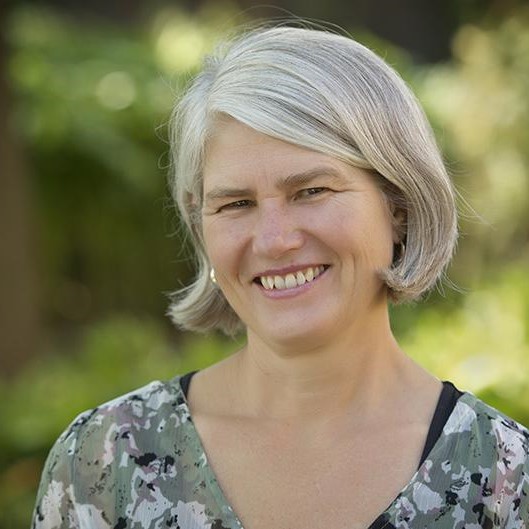A University of Guelph researcher is the Canadian lead on a new global research centre that will investigate the challenges and opportunities of green ammonia in food production and clean energy.
Dr. Claudia Wagner-Riddle, a professor in the School of Environmental Sciences within the Ontario Agricultural College, will collaborate with colleagues from the University of Maryland (U.S.) and Rothamsted Research (U.K.) to establish the Global Nitrogen Innovation Center for Clean Energy and the Environment (NICCEE). The NICCEE will be based at the University of Maryland Center for Environmental Science and led by Dr. Xin Zhang.

Ammonia, a compound made of nitrogen and hydrogen, is an important fertilizer, supplying plants with nitrogen for growth and improved crop yields.
Conventional ammonia production relies on fossil fuels and releases a lot of greenhouse gas. Green ammonia uses renewable and carbon-free resources instead and has the potential to enhance food production and provide clean fuel while mitigating climate change.
NICCEE aims to ensure new green ammonia technologies, practices and policies work well for farmers and other stakeholders without causing unintended social and environmental problems, such as nitrogen pollution.
Wagner-Riddle’s research team has received almost $3.5 million for the project from the Natural Sciences and Engineering Research Council (NSERC) through the National Science Foundation Global Centers initiative, an innovative partnership between funding agencies in Australia, Canada, the United Kingdom and the U.S. that supports international collaborative research on climate change and clean energy.
“The University of Guelph is proud to be part of this important international partnership,” said Dr. Rene Van Acker, interim vice-president (research). “It will enhance research efforts and foster international dialogue, leading to better informed decision-making that spans from individual farms to national policy.”
Green ammonia’s opportunities and challenges
Wagner-Riddle said pilot testing is now underway for technology that will allow small-scale production of green ammonia. On-farm production could provide farmers with a reliable and sustainable source of fertilizer. However, as a low-carbon energy resource, green ammonia will also be attractive for power generation and shipping fuel, leading to greater demand, she added.
“How stakeholders use the technology could either help mitigate climate change or worsen nitrogen pollution,” she said. “NICCEE is focused on the nitrogen problem as it is today, but also anticipating and proactively addressing future challenges, preventing them from becoming further complications.”
Figuring out the potential scientific, social and economic impacts of green ammonia technologies and developing best practices for nitrogen management with both agri-food and energy stakeholders is key. NICCEE will pursue this through three interrelated programs:
- An information hub will develop integrated models to monitor and predict the nitrogen flows from both agri-food and energy industry consumption for each country involved in the project and trace the global nitrogen cycle.
- An innovation platform will use “living labs” — real-world settings where researchers collaborate with farmers and other stakeholders to explore green ammonia technologies. These living labs will provide up-to-date information on advances in the field and enable social scientists to translate research findings for use in policymaking and business as well as study how stakeholders make decisions about nitrogen use.
- An education program will prepare the next generation to tackle the challenges of climate change and nitrogen management through transdisciplinary training and internship opportunities.
“We hear a lot about carbon when people talk about energy and climate change, but nitrogen needs to be in the public consciousness too,” said Wagner-Riddle.
An international effort
Wagner-Riddle’s research team is one of five NSERC has selected to work with international partners and the only one looking at the role of agri-food systems in climate change and energy. It unites researchers from the University of Guelph, McGill University, University of Manitoba and University of Saskatchewan.
They will join researchers from three American universities — University of Maryland, New York University and the University of Massachusetts Amherst — who have received about $5 million from the National Science Foundation; Rothamsted Research, a U.K.-based agricultural research centre, that has received support from UK Research and Innovation; and more than 20 collaborating government, industry and not-for-profit groups from across the globe.
NICCEE will also support training and professional development for undergraduate and graduate students and postdoctoral researchers.
Contact:
Dr. Claudia Wagner-Riddle
cwagnerr@uoguelph.ca
